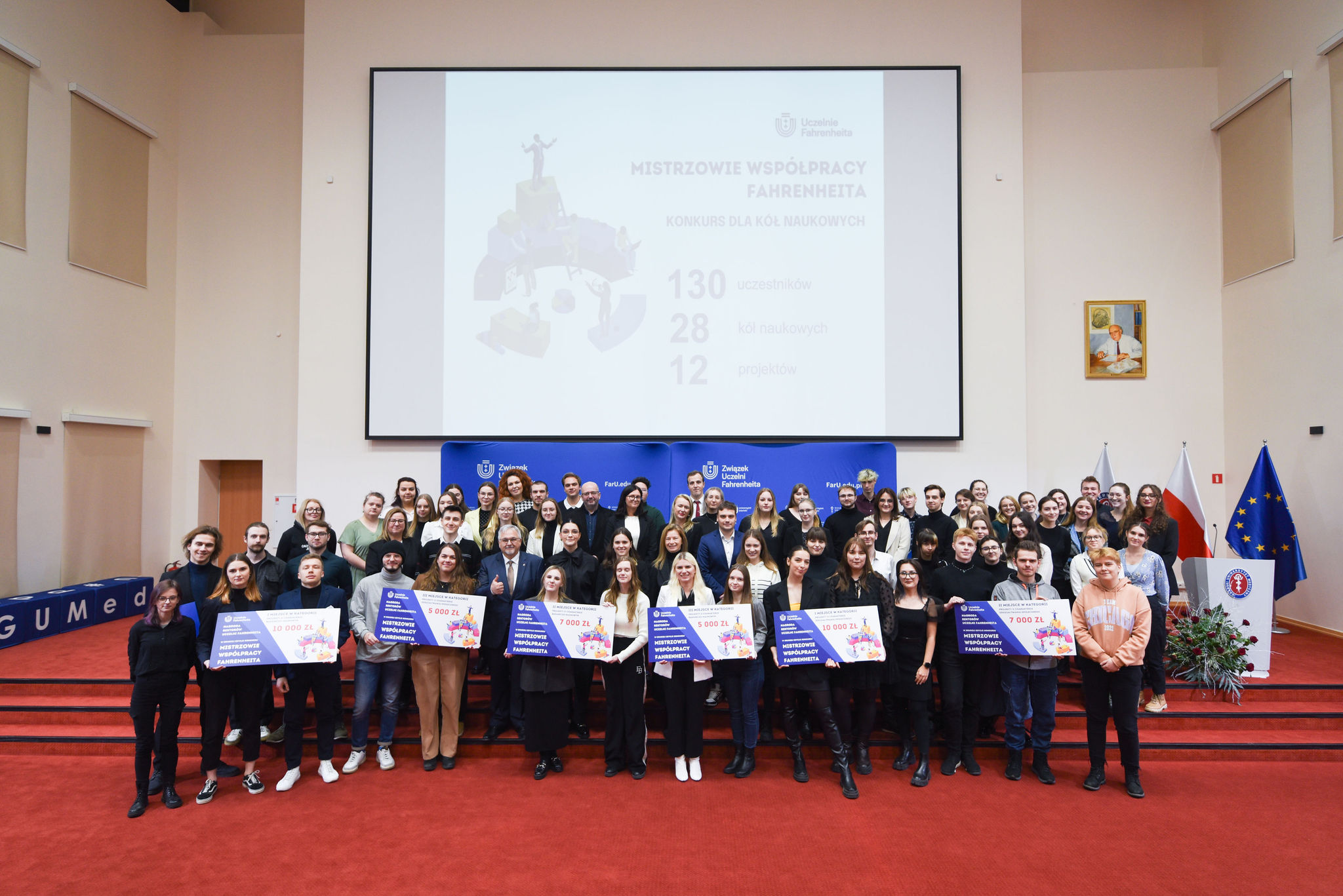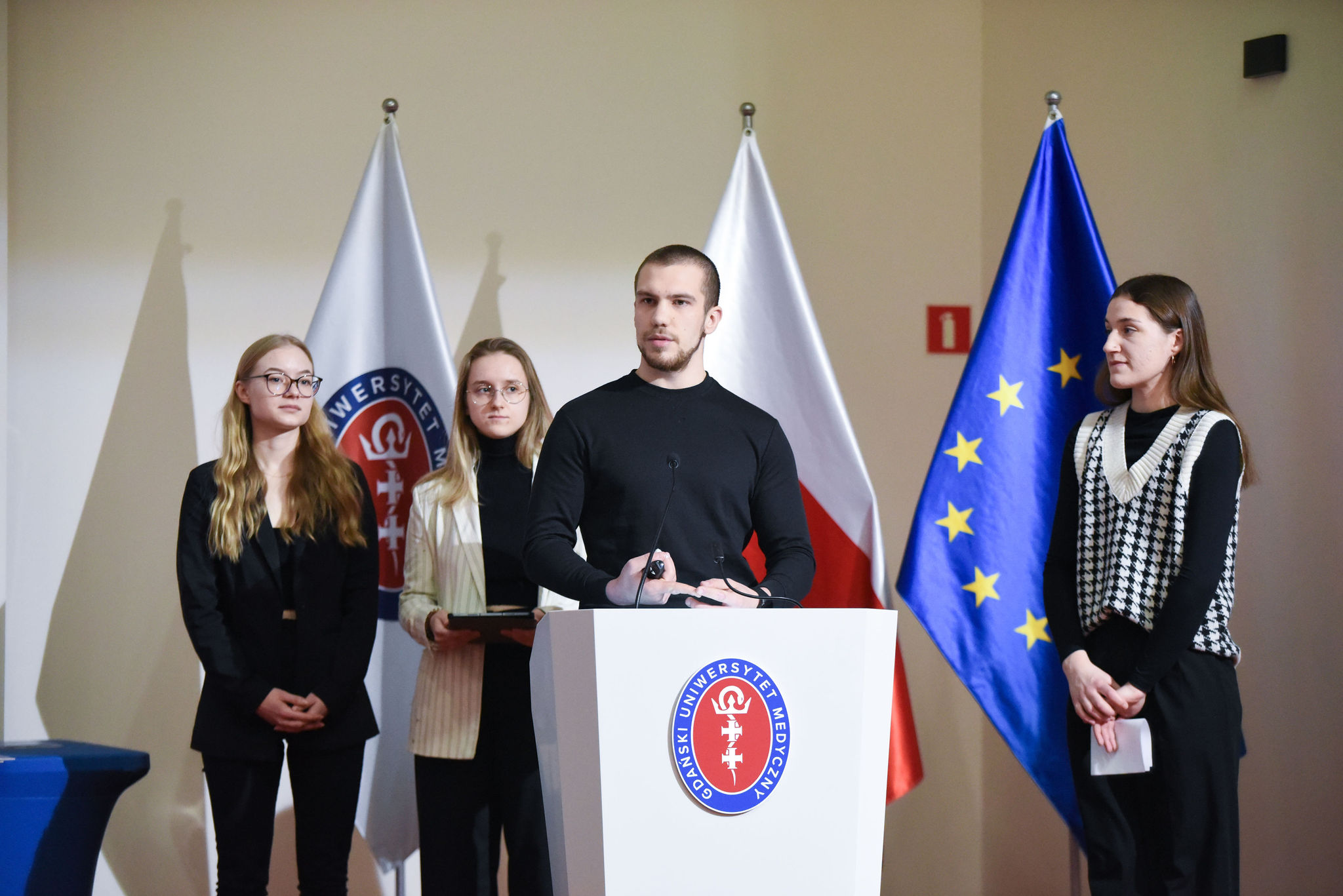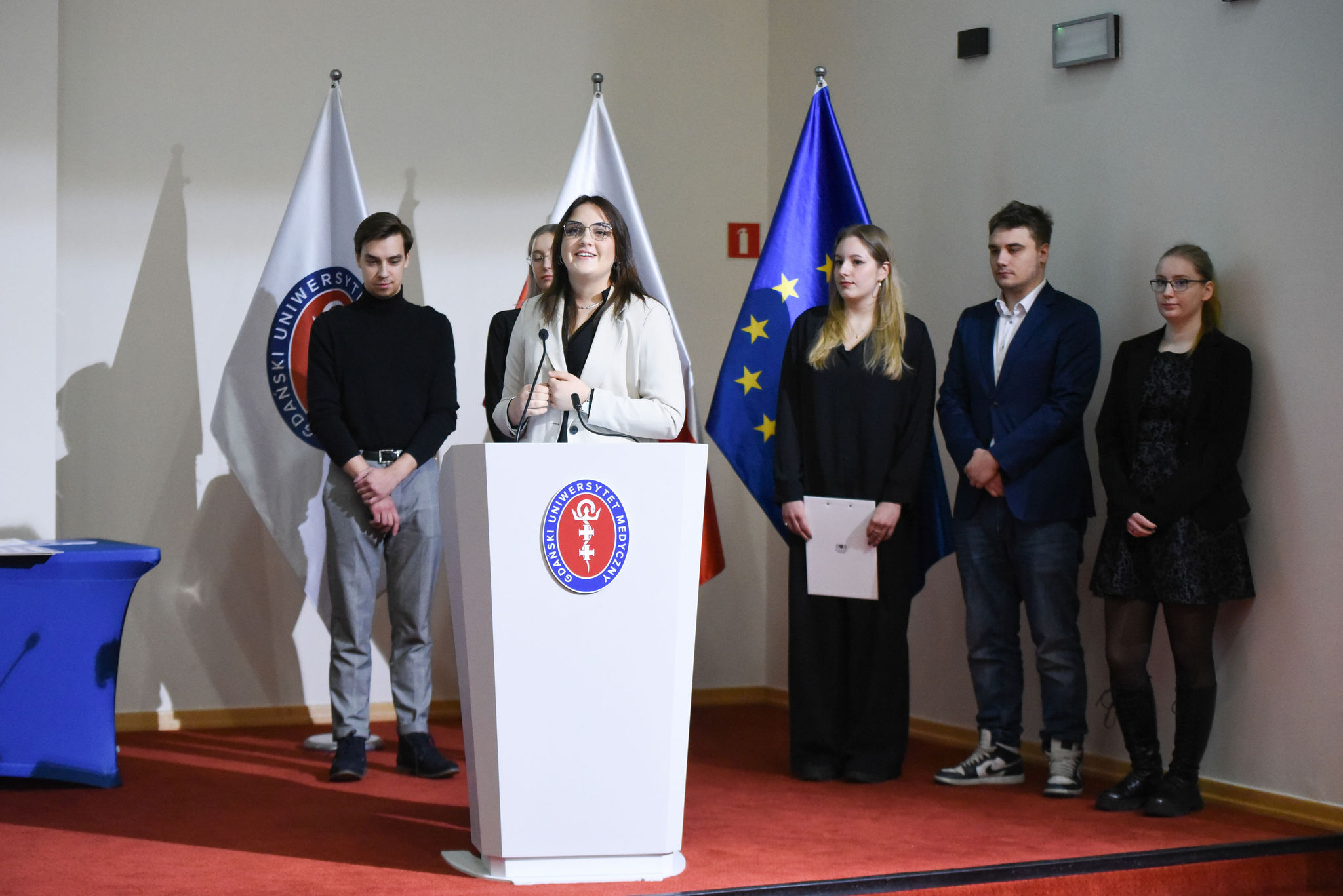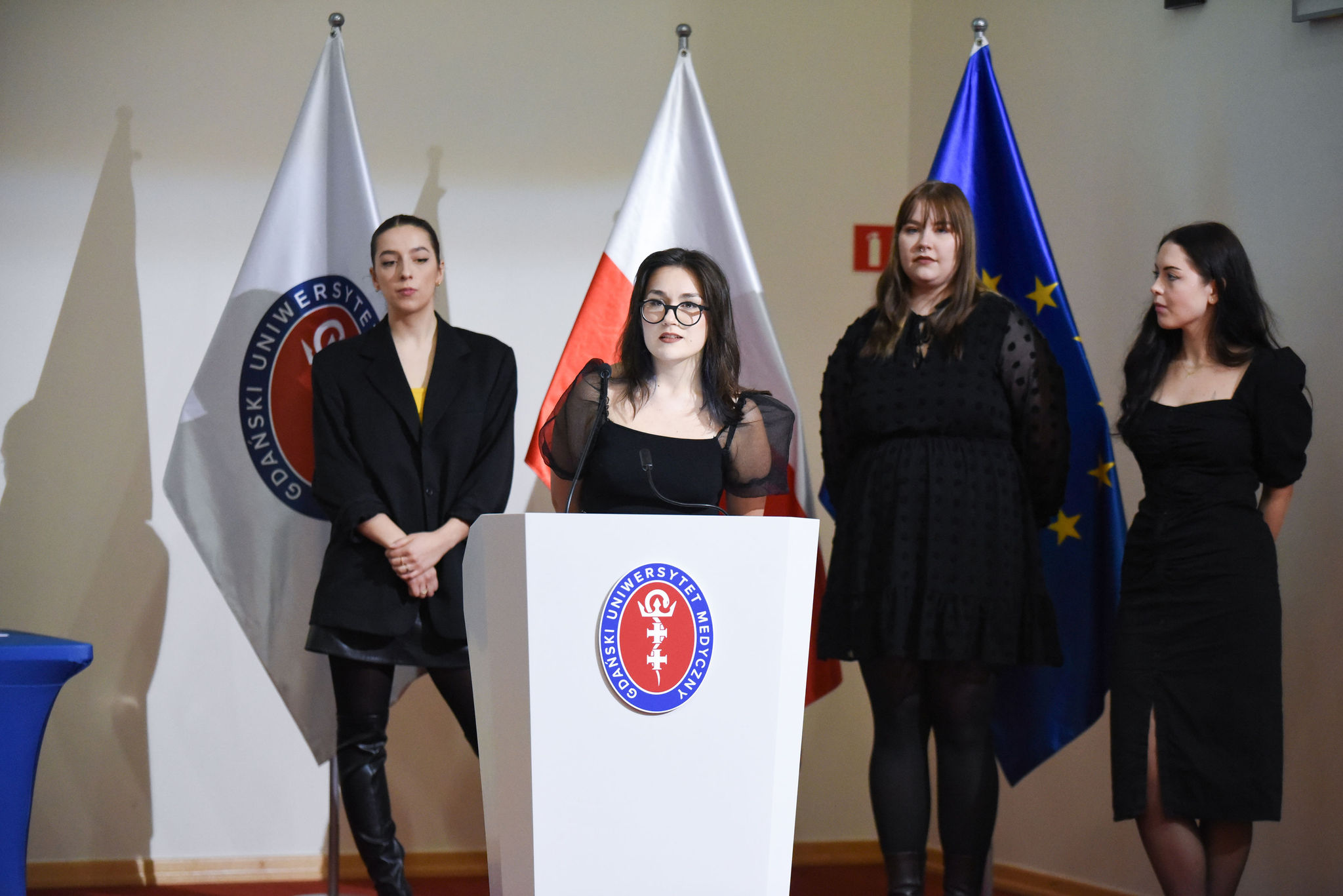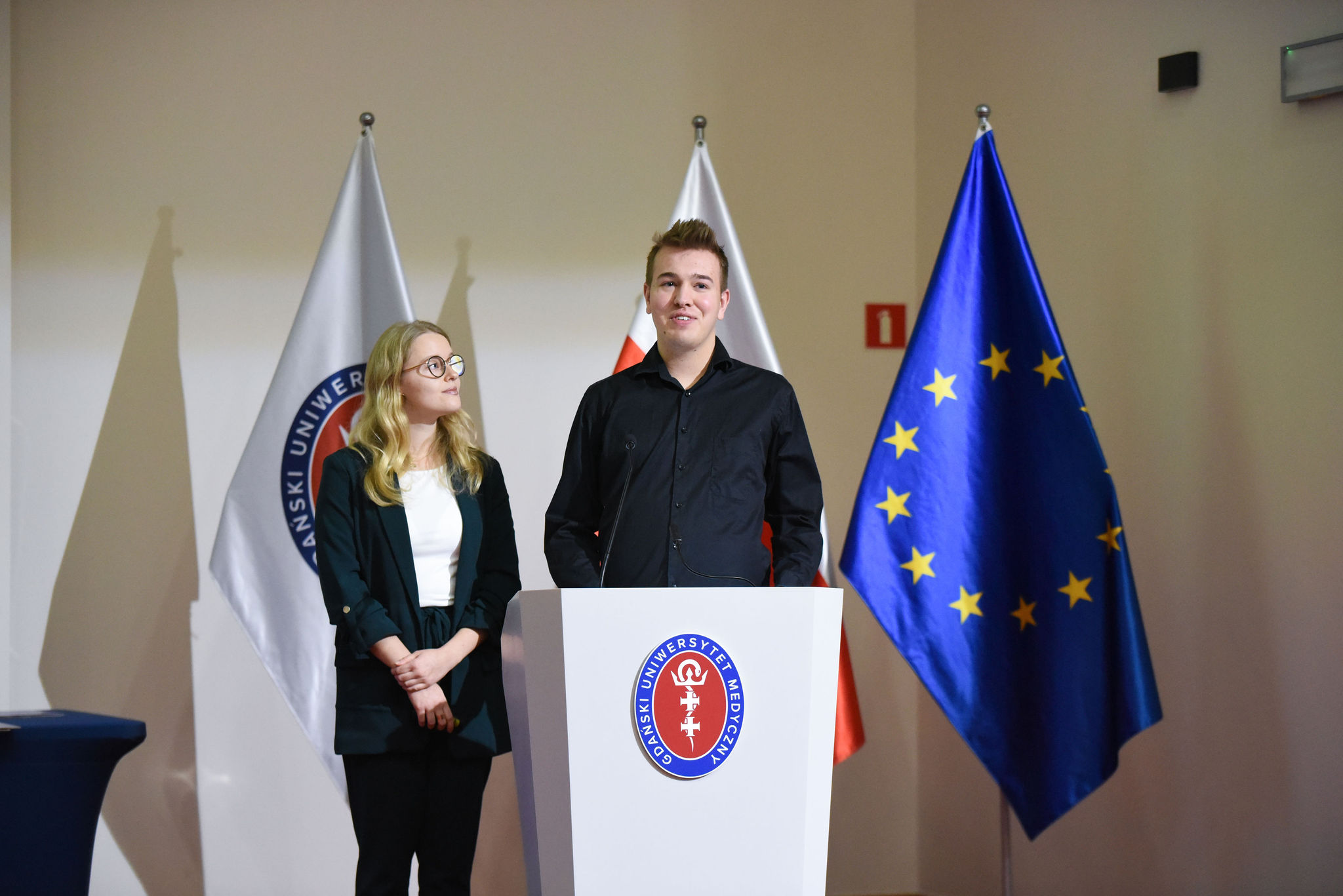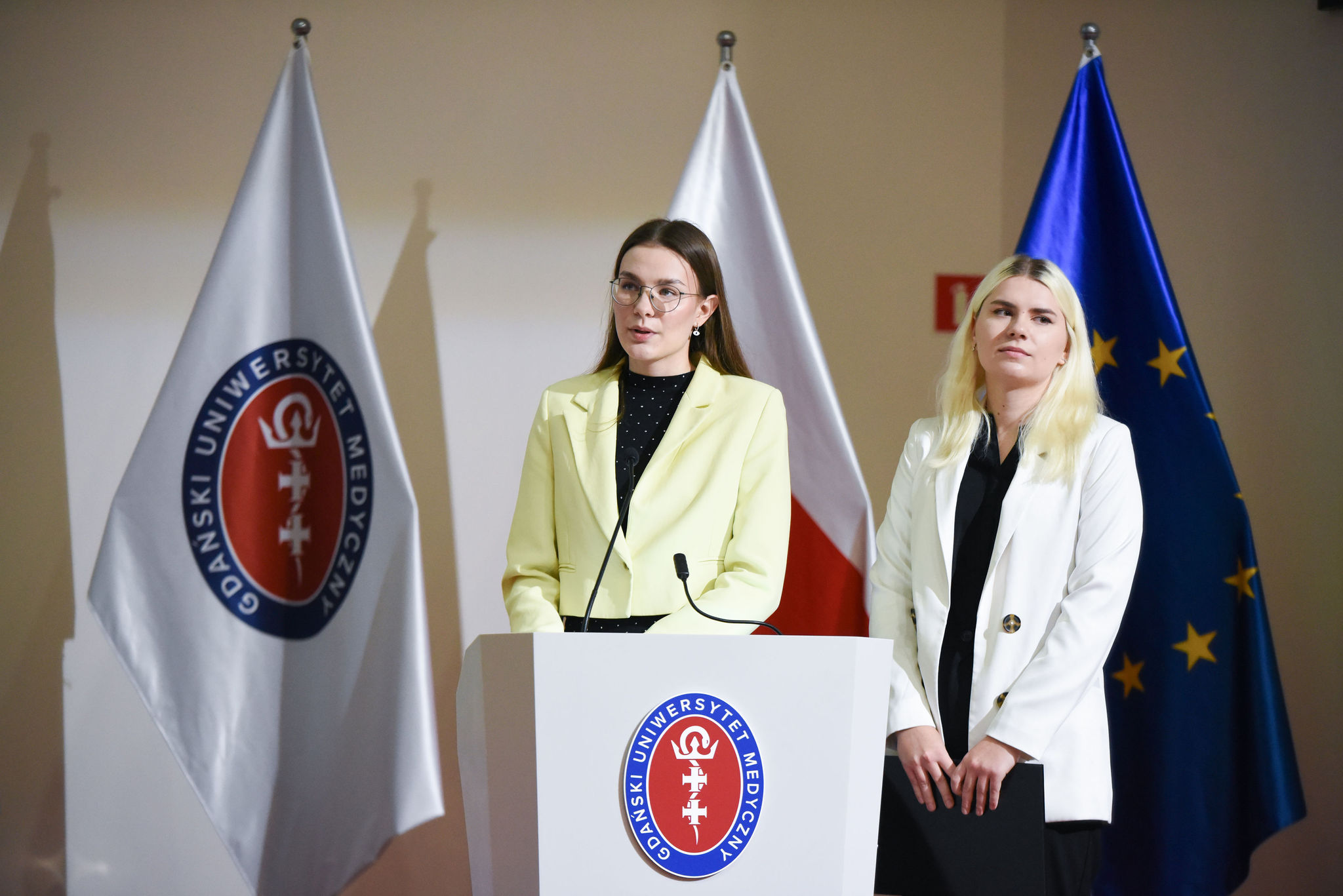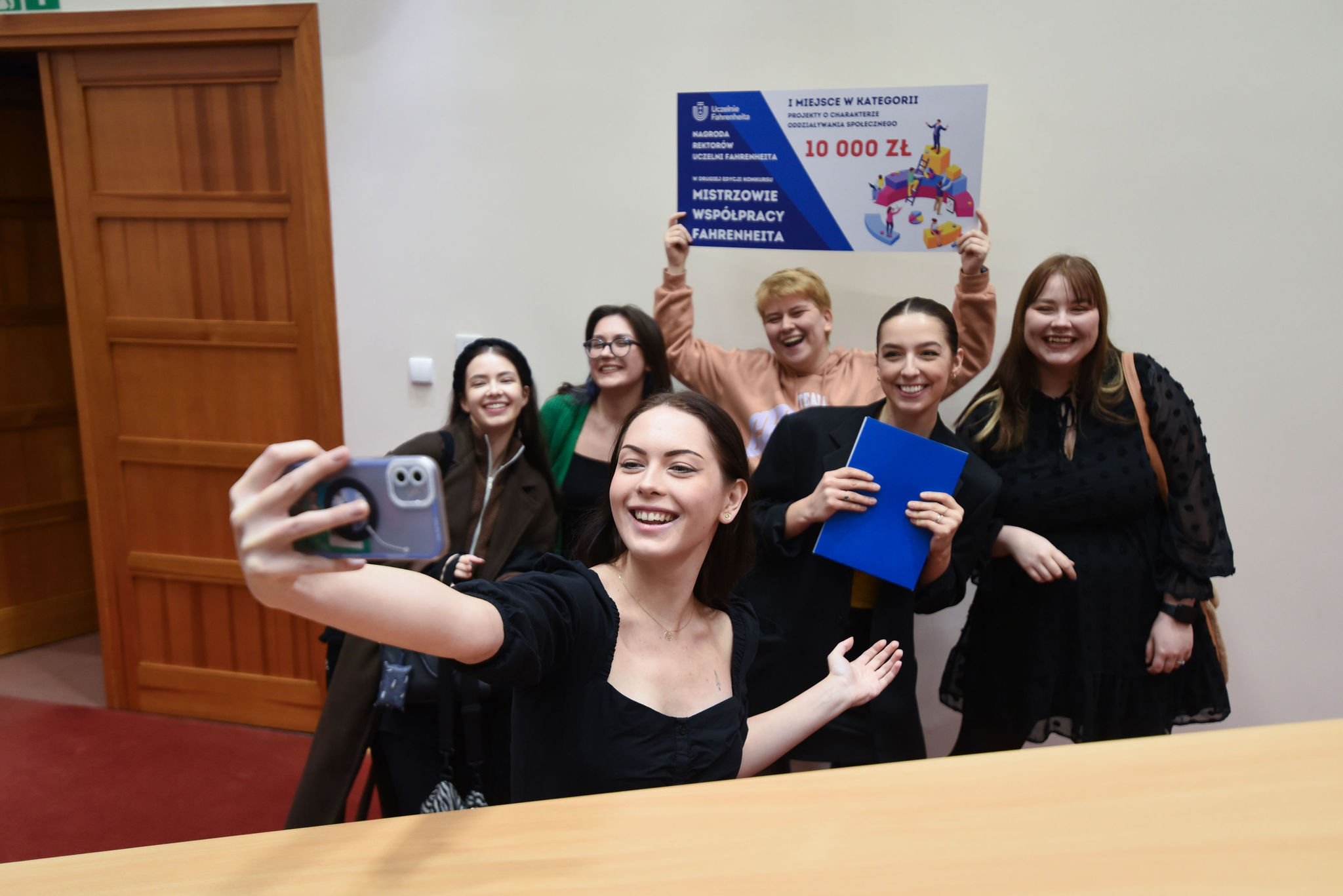New categories and more Champions of Cooperation. Learn about the winners!
The second edition of the Fahrenheit Champions of Cooperation competition is settled. For the first time, applications were accepted in two categories and the number of winners has increased. Prizes were awarded to as many as six teams during the gala announcing the results on 8th December at the MUG Atheneum Gedanense Novum.
The finals were inaugurated by the host of the event, prof. Tomasz Smiatacz, vice-rector for students’ affairs at the Medical University of Gdańsk. He emphasised the importance of action in the spirit of cooperation, which also aims to improve the conditions or opportunities for societies.
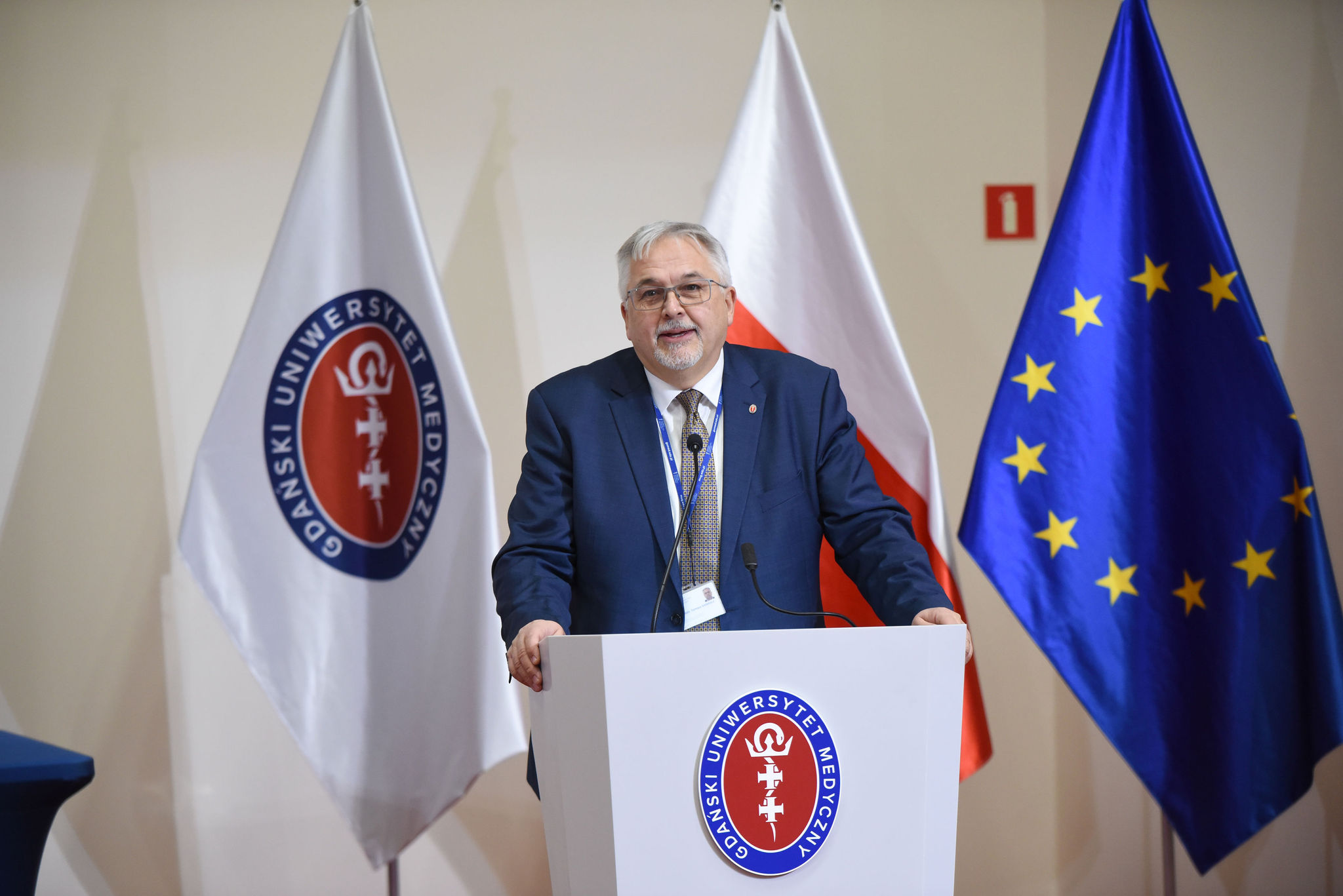
In the next speech, prof. Adriana Zaleska-Medynska, director of the Fahrenheit Universities in Gdańsk, emphasized not only the aspect related to intercollegiate initiatives, but also the development of skills in applying for and implementing projects with a view to raising funds in the future, during the academic or professional career. She also invited all project groups to participate in workshops that the Fahrenheit Universities will organise in autumn 2024. The workshops dedicated to the participants of the competition are intended to become a permanent element of the initiative.
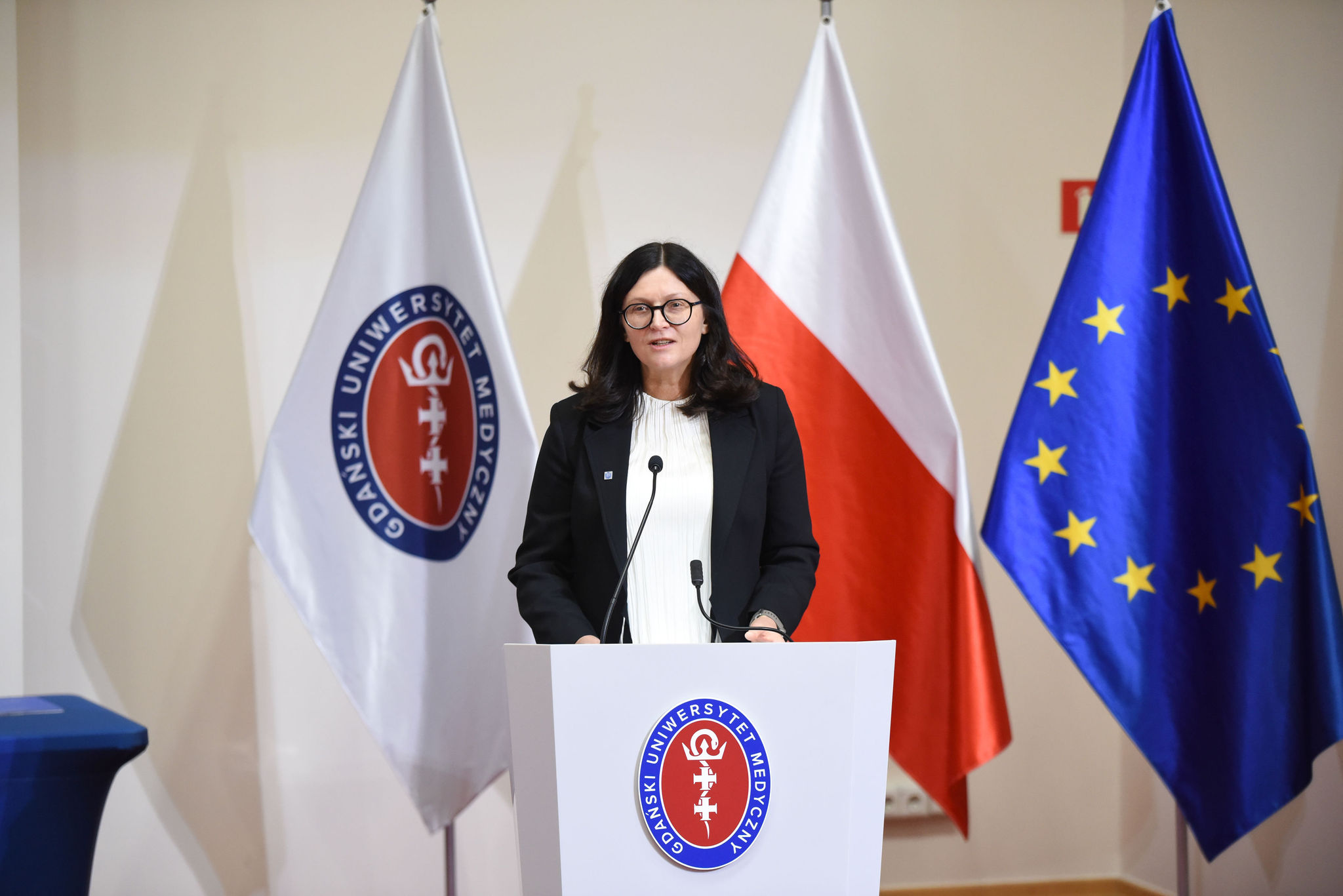
During the gala, all teams had a chance to present their ideas briefly. In this year's edition, 12 applications were submitted by 131 persons associated in 28 science clubs of the Medical University of Gdańsk, Gdańsk University of Technology and University of Gdańsk.
In the scientific and research project category:
- In pursuit of a new antifungal drug – Partricin B vs Amphotericin B
- Investigating the influence of effort during an e-sports tournament on myocardial load
- Anti-ageing gene therapy for human skin fibroblasts
- BrainSync
In the social impact project category:
- DESIRE... but don't infect
- FarU EKO-Kashubia: Innovative Project for Integration, Education and Protection of the Raduńskie Lakes Loop Trail
- Switch on the Yellow Viaduct
- Nurse Logibike – logistic support of the work of a community nurse
- 15-minute City
- Educational awareness campaign covering rare diseases in paediatric patients
- Fashion Zero Waste
- "Thank you, Body” Social Campaign
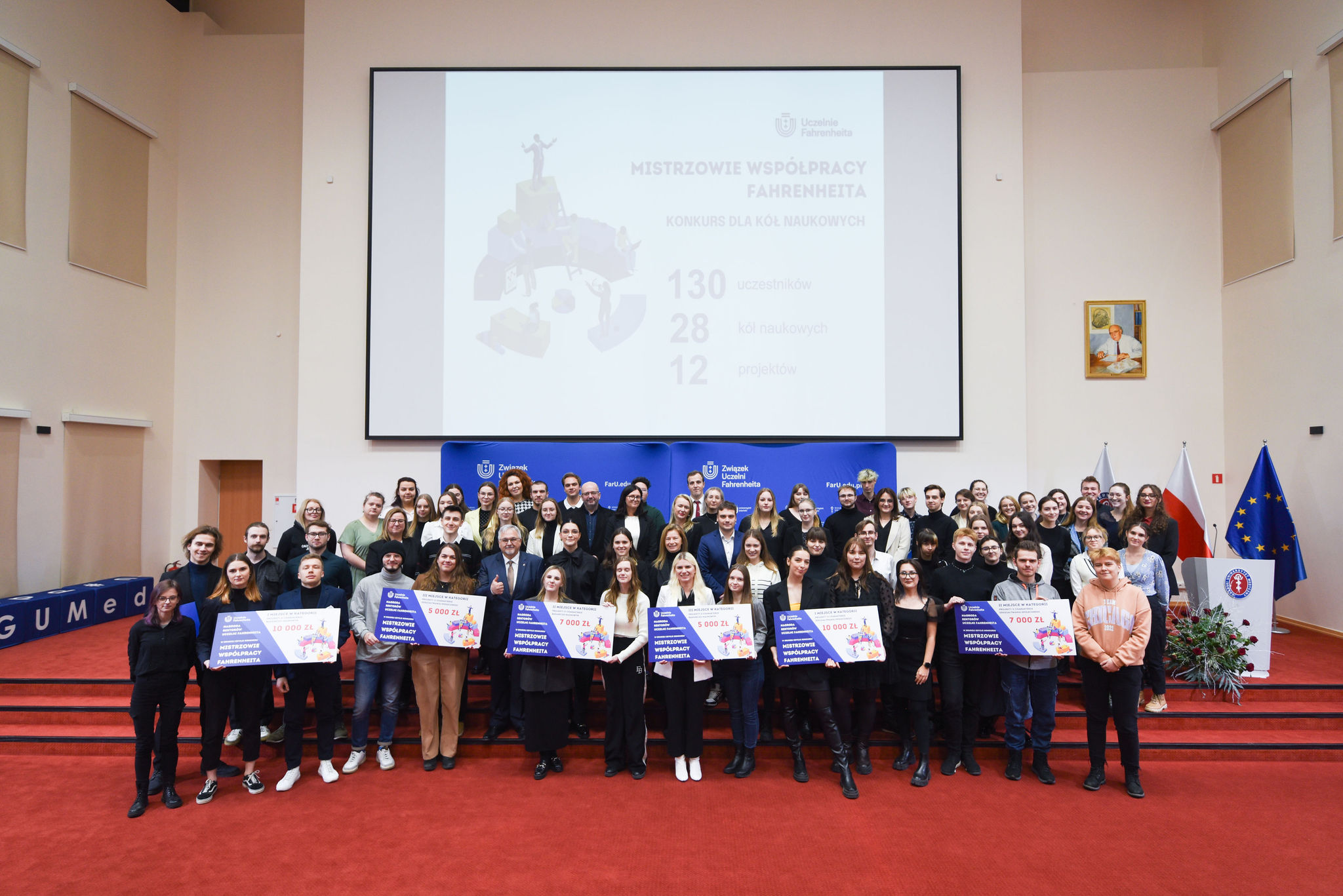
Among all applications, the highest score was awarded to the project titled “Investigating the influence of effort during an e-sports tournament on myocardial load”, submitted by the students’ science clubs at the 1st Department of Cardiology of the MUG, the Stream of Thoughts from the UG and MUG Intercollegiate Faculty of Biotechnology and the Data Science Club from PG. Thus, the project won first place in the scientific research project category.
We do not realise this fully yet. To be on the podium would already be a great joy, let alone to be the winner – comments Paweł Siuciak, project coordinator. – We want to do research which is not normally done routinely, even more so if such a research group is taken into consideration.
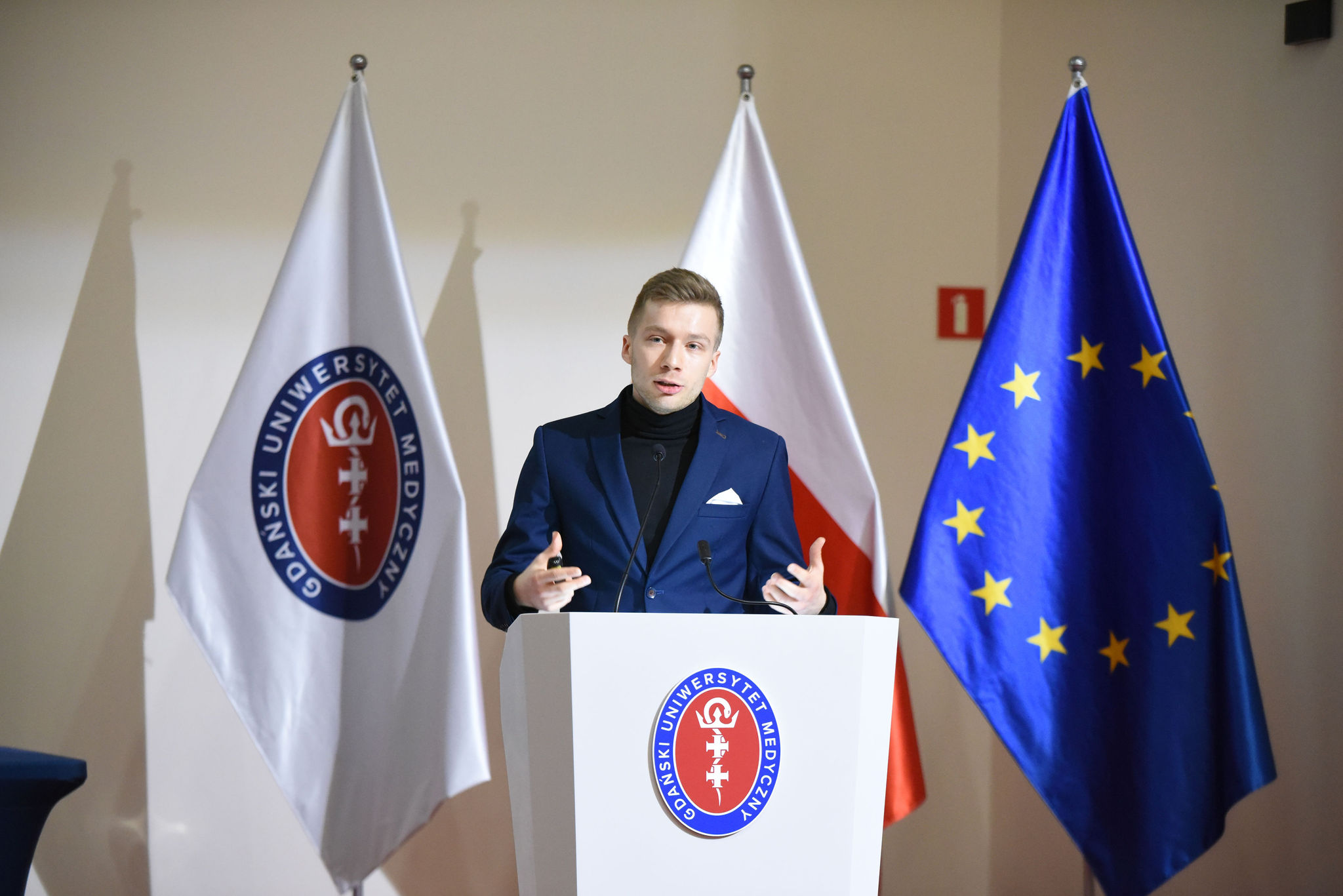
The planned project aims to assess the influence of e-sport effort on the condition and organism of top players in professional e-sports teams, as well as to promote a healthy lifestyle. There are more than three million e-sports players worldwide and, as the originators emphasise, there are numerous indications that there is a great need for education in this group (e.g. due to sleep deprivation or poor nutrition). Players will be surveyed during a tournament organised by Kinguin Esports Lounge Gdańsk.
The second place in this category went to the “BrainSync” project by the Cerebrum Intercollegiate Neuropsychology and Neuroscience Science Club (the MUG, Gdańsk Tech and UG), which involves a study of electrophysiological activities of concentration and higher brain functions via a single-channel brain-computer interface among FarU students. After analysis of the results, the method could potentially be used in the treatment of concentration deficit disorders.
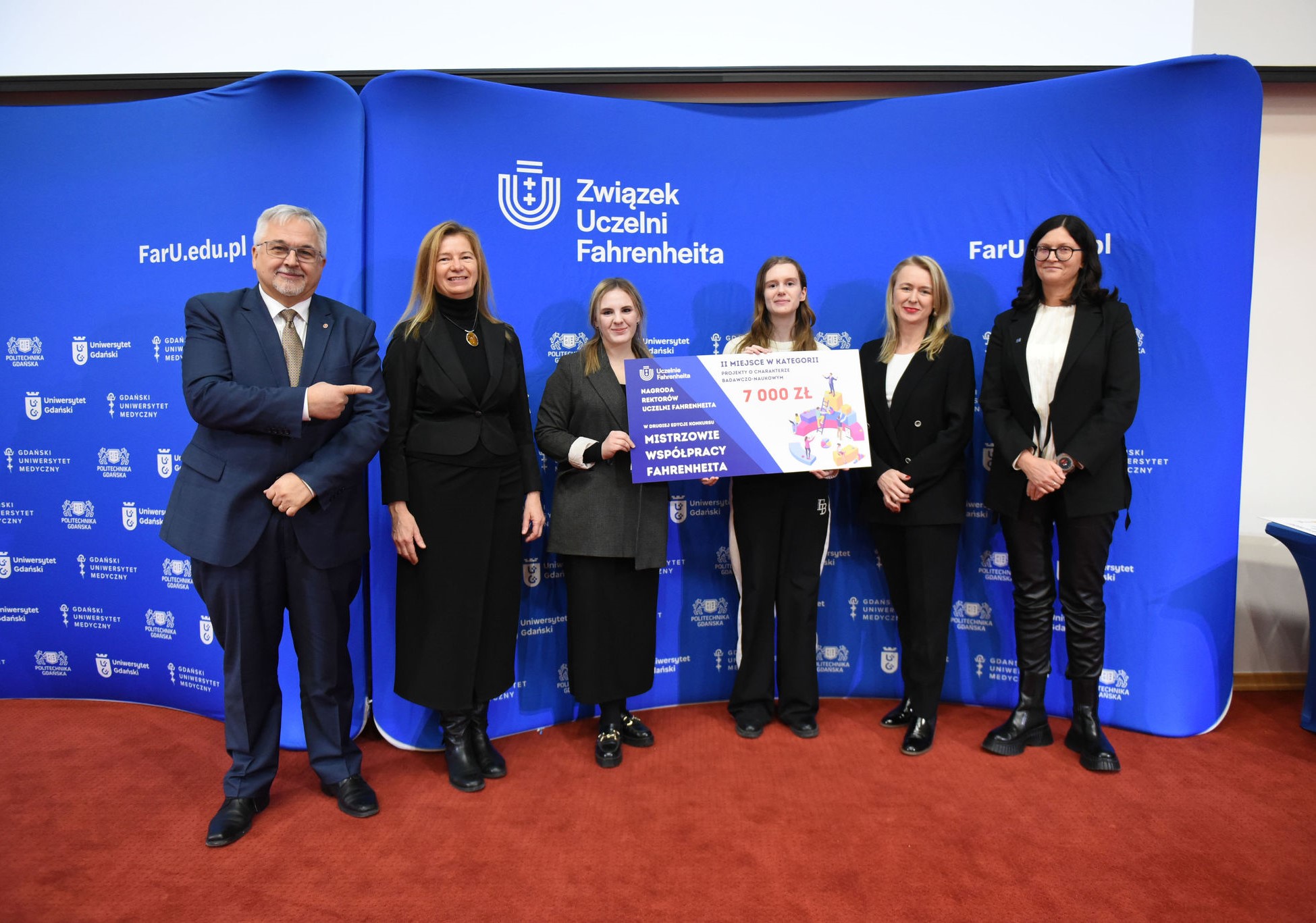
In the third place was “In pursuit of a new antifungal drug. Partricin B vs Amphotericin B” submitted by the “Biochemists” Students’ Science Club (the MUG) and the Biotechnology Students' Science Club (the Gdańsk Tech). The project objective is to isolate and investigate the effects of light, temperature, pH, ultrasound and oxygen from air on the stability of the potential antifungal drug Partricin B (ParB), compared to the widely used drug called Amphotericin B (AmB).
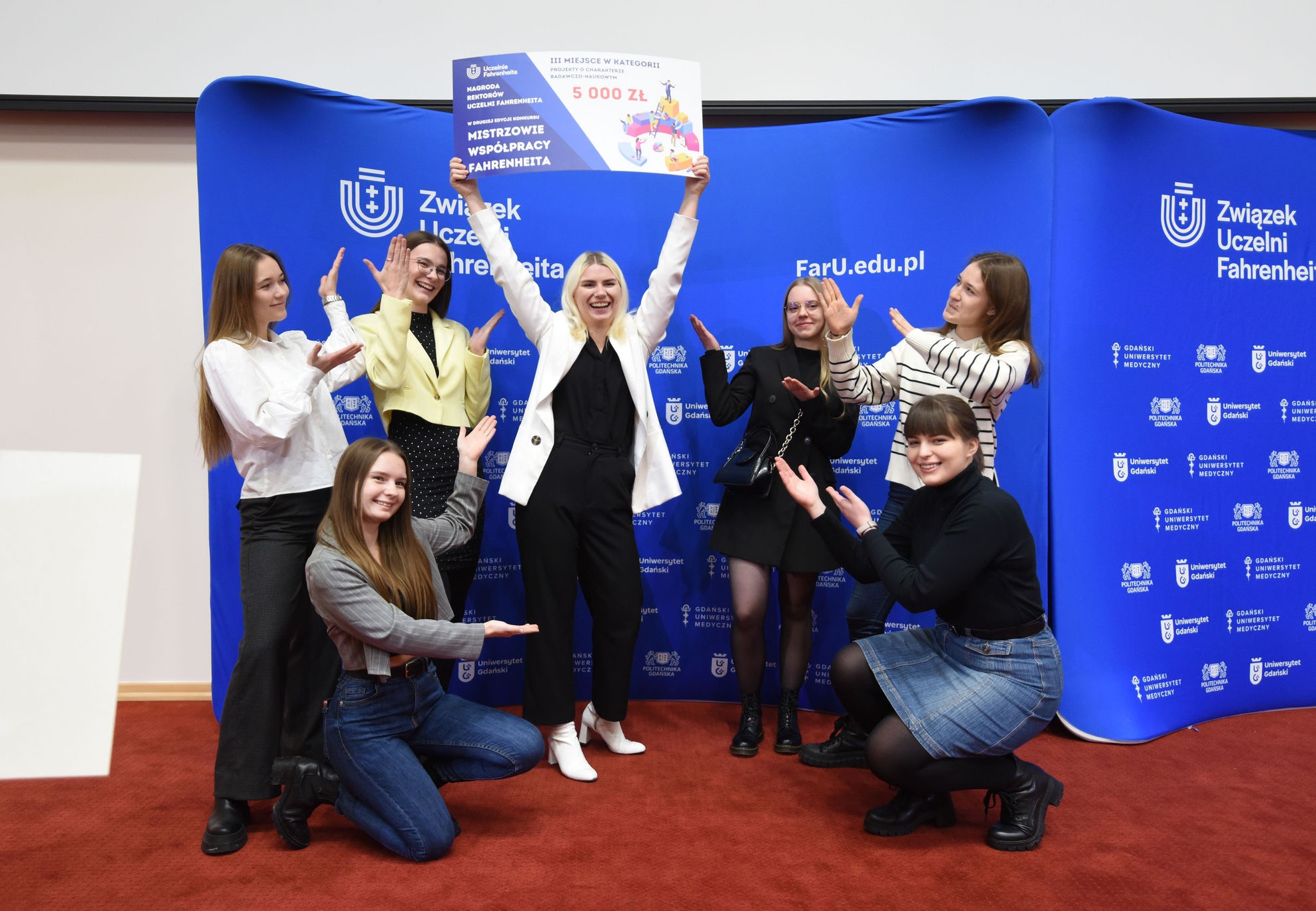
In turn, the highest podium place in the category of social impact projects was awarded to the authors of the application titled “Switch on the Yellow Viaduct”, representing the Digital Architecture Lab science club from the Gdańsk Tech and the Spatial Economy Students’ Science Club from the UG.
The project will highlight the significance of the place through education and fun during workshops and a game in which younger generations will also learn about the history and retrospection of the area. Participants will learn about less known corners of the city, the history, events and elements of cultural heritage that can be found within the space of the three districts – the Centre, Aniołki and Młyniska – the originators emphasise in the application.
The main objective will be to develop a concept of the Yellow Viaduct that is accessible, friendly and open to all through the integration of the academic community and local social groups.
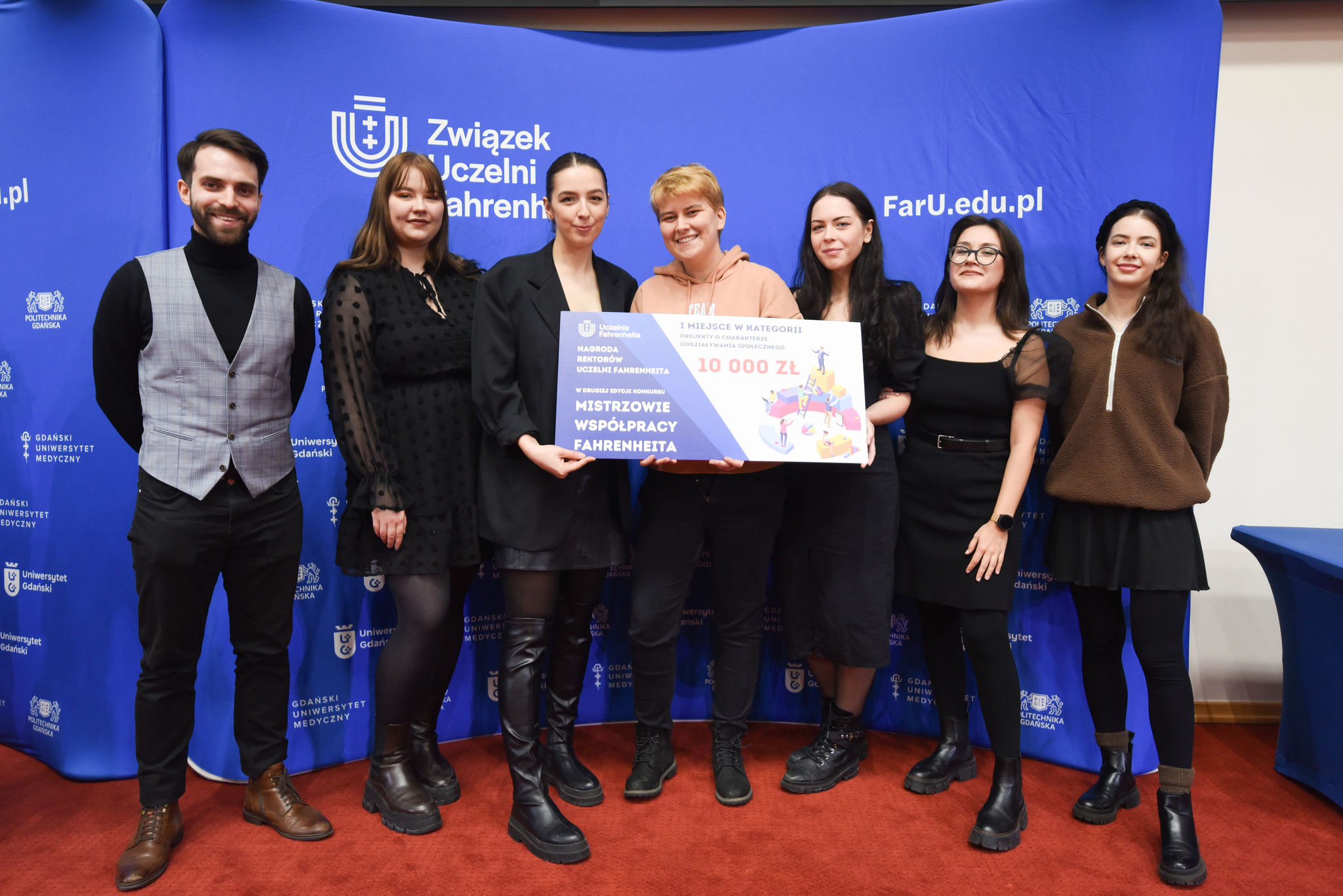
Another prize-winning project is the “Thank You, Body” Social Campaign" originated by the Vertex Computer Graphics Science Club (the Gdańsk Tech) and the Ars Amandi Sexology Science Club (the UG). The main objective is to draw the audience's attention to what we owe to the organism and its activity, without being limited by shape, mass, cultural standards or age.
The body is a fascinating way to unite society at the same time (after all, we all have the body!), but also to allow persons to feel individuality, to emphasize the exclusive bond that each of us has with our body, the only one in which we are able to live. By putting the body at the centre of the campaign, we want to influence various spheres of human life – mental health, the quality of social relations and also sexual relations – reads the competition application.
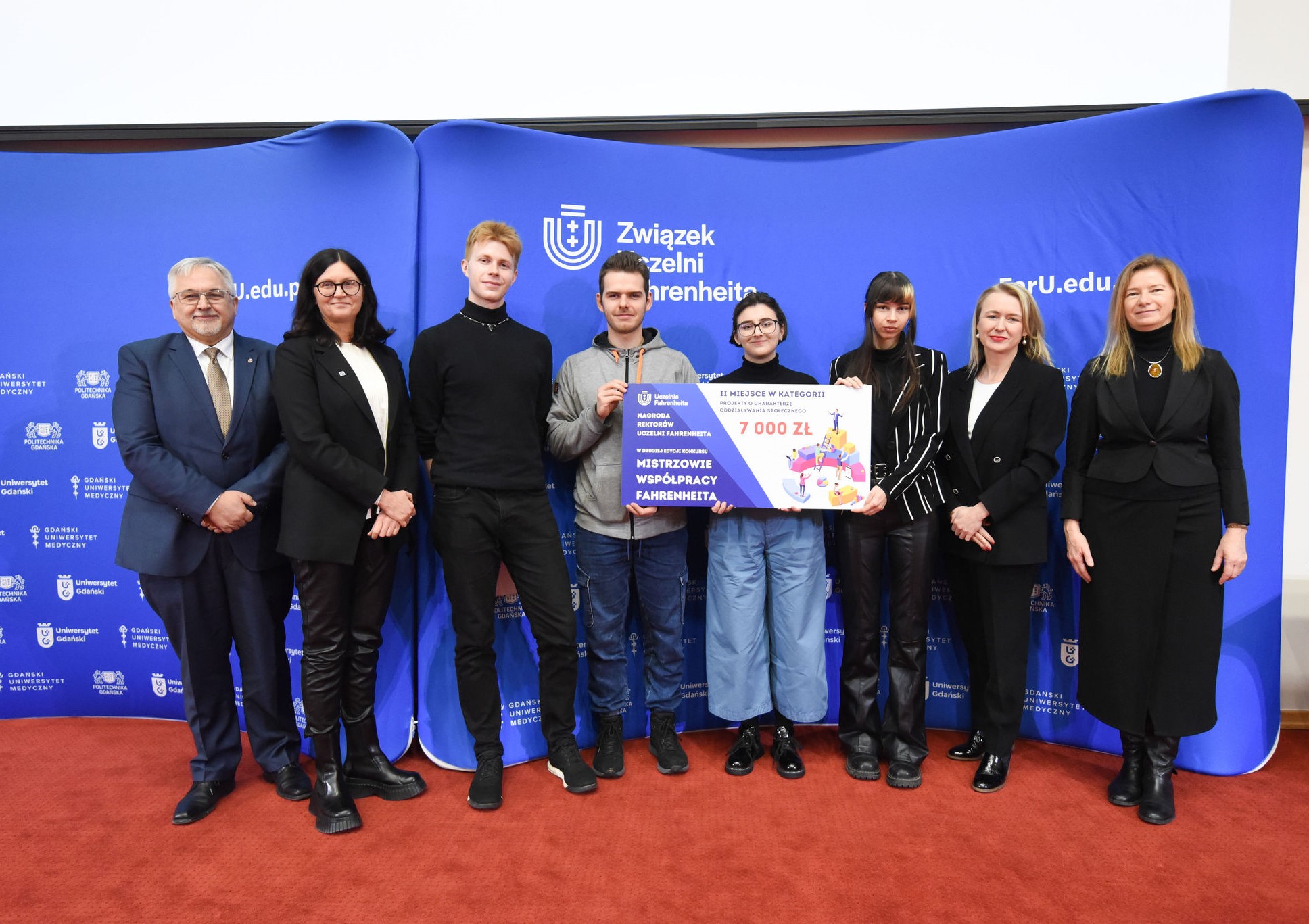
Also among the winners were the authors of the proposal “Fashion Zero Waste” from the Environmental Health and Epidemiology Students’ Science Club (the MUG), Digital Architecture Lab (PG), as well as the Chemical Business Science Club, the Chemists’ Science Club and the Environmental Protection Science Club from the UG. The students highlighted statistics such as the number of textiles produced that end up in landfills and the low percentage of clothing materials that are recycled. The aim of the project is to educate, raise the awareness of overproduction, the high volume of pollutants generated and waste in the fashion business.
We were prompted to enter the competition to impress upon the public that their actions and decisions have an impact on the environment and to encourage the purchase of second-hand clothes – explains Igor Gaszyński, a team member.
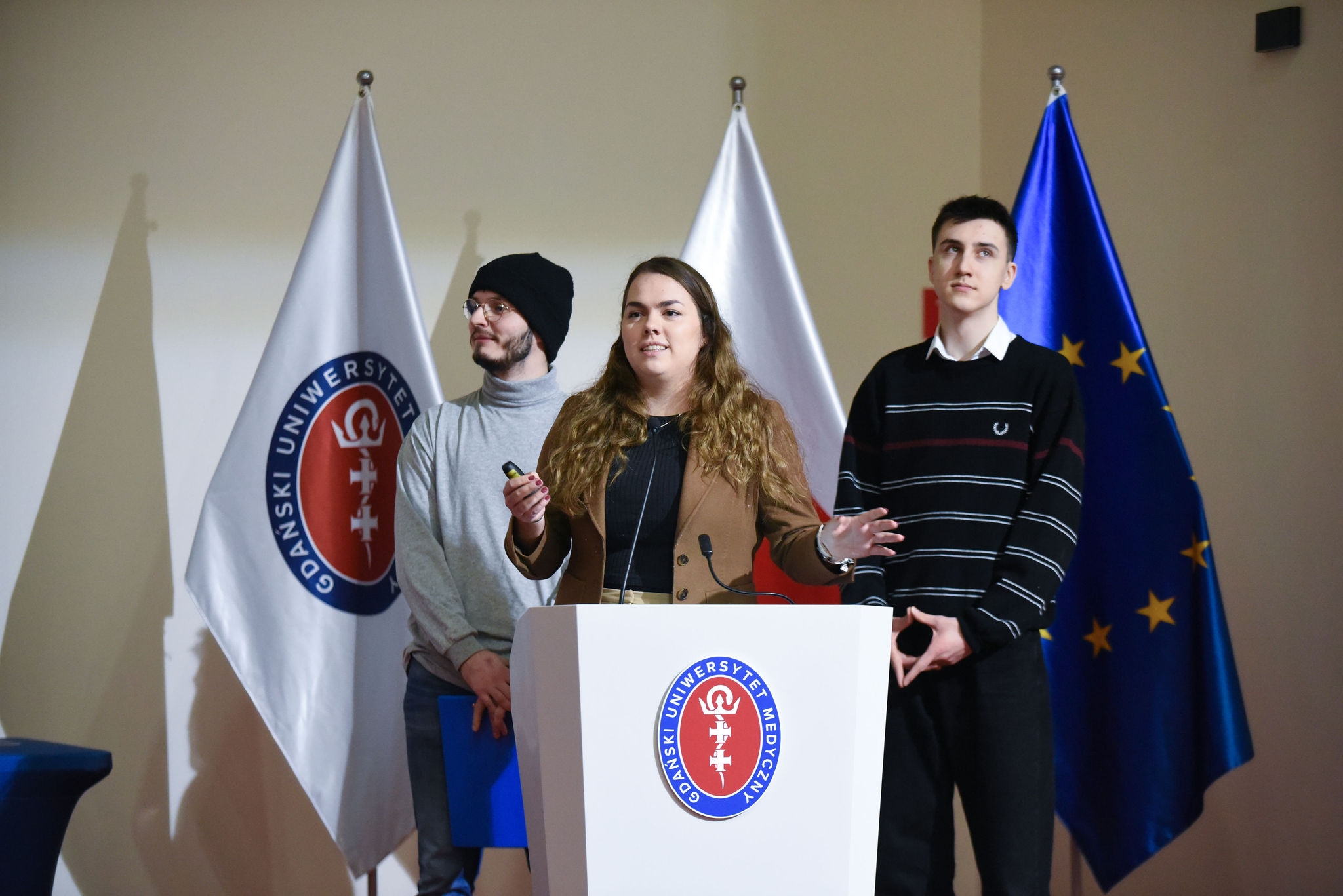
The prizes in both categories were presented by prof. Tomasz Smiatacz, vice-rector for students’ affairs at the Medical University of Gdańsk, prof. Barbara Wikieł, vice-rector for students’ affairs of the Gdańsk University of Technology, prof. Sylwia Mrozowska, vice-rector for cooperation and development of the University of Gdańsk, and prof. Adriana Zaleska-Medynska, director of the Fahrenheit Universities.
Photo: GREGMAR

